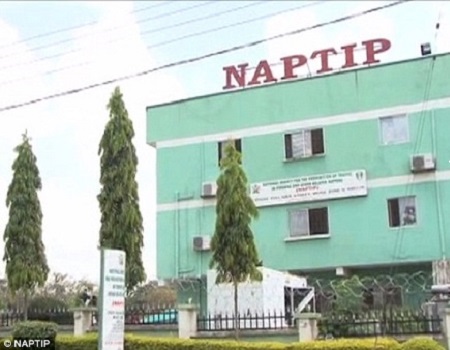The National Agency for the Prohibition of Trafficking in Persons(NAPTIP) has faulted the Human Rights Watch report released on Tuesday on survivors of trafficking.
The 90-page report, titled:‘You Pray for Death’: Trafficking of Women and Girls in Nigeria has accused the Federal Government(FG) of not living up to its responsibility of providing assistance to survivors for proper reintegration into society.
It partly reads: “Many survivors of sex and labour trafficking struggle with unaddressed health challenges, poverty, and abhorrent conditions upon their return to Nigeria. Nigerian authorities have failed to provide the assistance that survivors need to rebuild their lives and have unlawfully detained many of the already traumatised women and girls in shelters.”
ALSO READ: Osinbajo presides over inaugural Economic Management meeting
However, in reaction to this, the agency’s Director General(DG) Julie Okah-Donli at a briefing in Abuja, described the report as unfounded, as the narratives in the said report fall below standards in the operations of its shelters.
She said:” After going through the report, we are bold to say that the entire report is a mere figment of the imagination of the writers as the narratives fall below the standards in the operations of our shelters as well as the standards for our victims’ support and assistance.”
In her address, she argued that the agency has continued to observe international standards on the handling of victims in line with the Palermo protocol which states that no victim shall be kept in shelter against his or her will.
She added that:”The activities in our shelters are further guided by the National Policy on Protection and Assistance to Trafficked Persons in Nigeria, a national document that has also been adopted by ECOWAS in dealing with victims of human trafficking.”
She explained that the shelters are where victims are given protections and assistance for a short while before moving them to open shelters for rehabilitation purpose.
The DG pointed out that the shelter is not a detention camp noting that: ” Some of the victims equally do not want to be reunited with their families as their family members were part of their trafficking in the first instance and reuniting them, therefore, amounts to further endangering their lives.”
To this end, she assured that the agency will continue to abide by international standards and best practices in the protection and assistance to trafficked victims rescued within and outside the country.
” we will never put them in our shelters a day longer than necessary,” she added.




